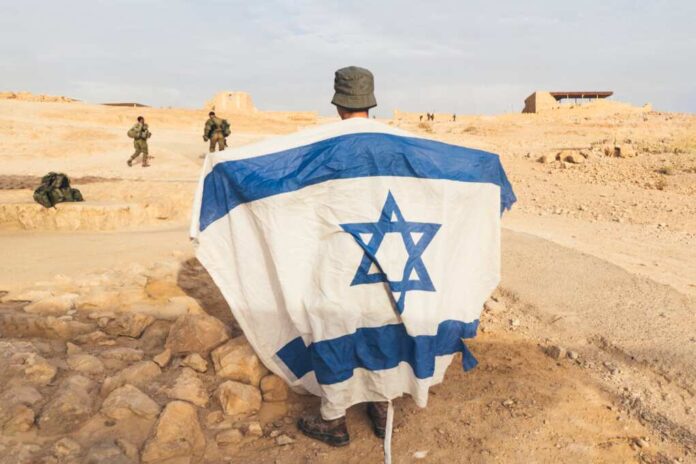
On Tuesday, the Israel Defense Forces (IDF) announced the elimination of a high-ranking Hamas leader Adil Mismah, who was instrumental in the deadly October 7 terror attacks on Israel. The IDF detailed Mismah’s role as the Nukhba commander in Deir al Balah, Gaza, describing his involvement in orchestrating multiple attacks on Israeli kibbutzim and clashes with IDF forces.
The October 7 attacks have been a catalyst for the ongoing war in Gaza, now entering its third month, with Israel recently intensifying its efforts to dismantle Hamas’ operational capabilities.
IDF claims it killed Hamas leader involved in October terrorist attack https://t.co/j322LYRkU3 https://t.co/j322LYRkU3
— Washington Examiner (@dcexaminer) January 2, 2024
Mismah’s elimination, achieved through a coordinated IDF airstrike, signifies Israel’s unwavering commitment to combating what it views as a relentless terror threat. The IDF’s operation also involved ground troops, indicating a comprehensive strategy against Hamas. Alongside Mismah’s targeting, various other Hamas-operated sites have been neutralized, including weapon caches and strategic positions.
The war’s protracted nature has prompted Israel to transition to a new phase of military operations. This phase prioritizes targeted actions against key Hamas figures over broader airstrikes and artillery use. As part of this shift, some reservists will reportedly return to civilian life, a move expected to bolster Israel’s economy, as mentioned by Reuters.
Israeli Prime Minister Benjamin Netanyahu has been candid about the conflict’s expected duration, projecting at least six more months of military engagement. This period will focus on “intense mopping-up missions” against Hamas, according to an Israeli official quoted by Reuters. The official’s statement points to a strategic recalibration, focusing on precision strikes rather than broad-scale operations.
In a recent development, Israeli forces executed a bold strike in Beirut, targeting another senior Hamas figure, Saleh al-Arouri. Lebanese news outlets reported that al-Arouri, the deputy chief of Hamas’s political bureau in Beirut, was killed in a drone strike. This operation marks a significant expansion of Israel’s military reach, indicating a broader regional approach to its fight against Hamas and allied groups.
Al-Arouri’s death has elicited strong reactions from Palestinian militants, with Hamas official Izzat Al-Rishq denouncing the act as a “cowardly assassination.” However, Israel maintains its stance on the necessity of these operations, framing them as critical responses to the threats posed by Hamas and its affiliates.
Furthermore, the IDF’s operations extend beyond the Gaza Strip, with recent strikes in Syria targeting Iranian-backed forces. This broader engagement reflects Israel’s perception of facing a multi-arena war, one that involves confronting Iranian influence in the region.
Netanyahu’s administration has made it clear it intends to disrupt Hamas’s military infrastructure and systematically target its leadership, including figures like Yahya Sinwar, the top Hamas leader in Gaza, and Mohammed Deif, head of the group’s military wing. The focus on destroying the terror organization’s leadership is central to Israel’s strategic approach to weakening Hamas’s operational and command capabilities.














